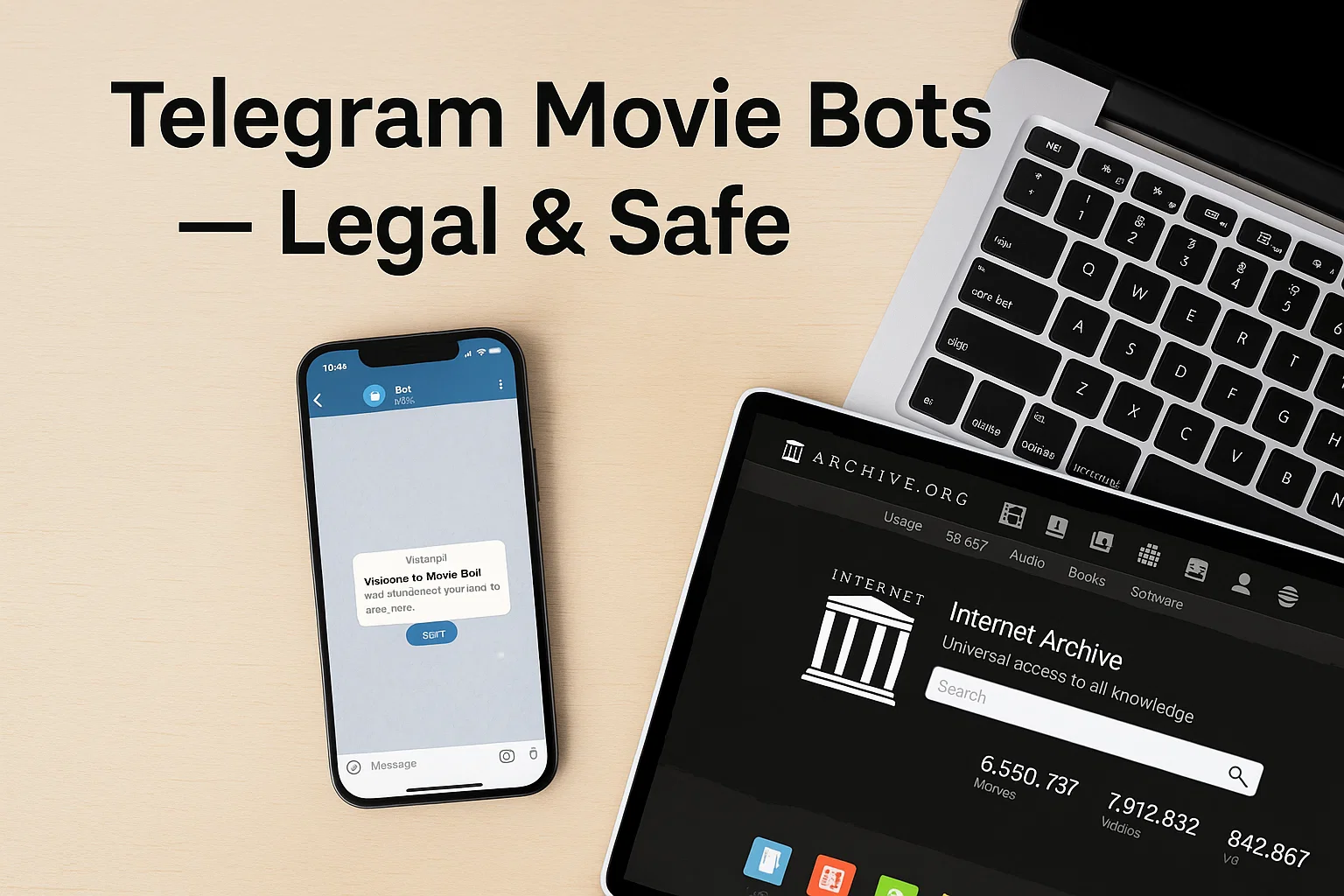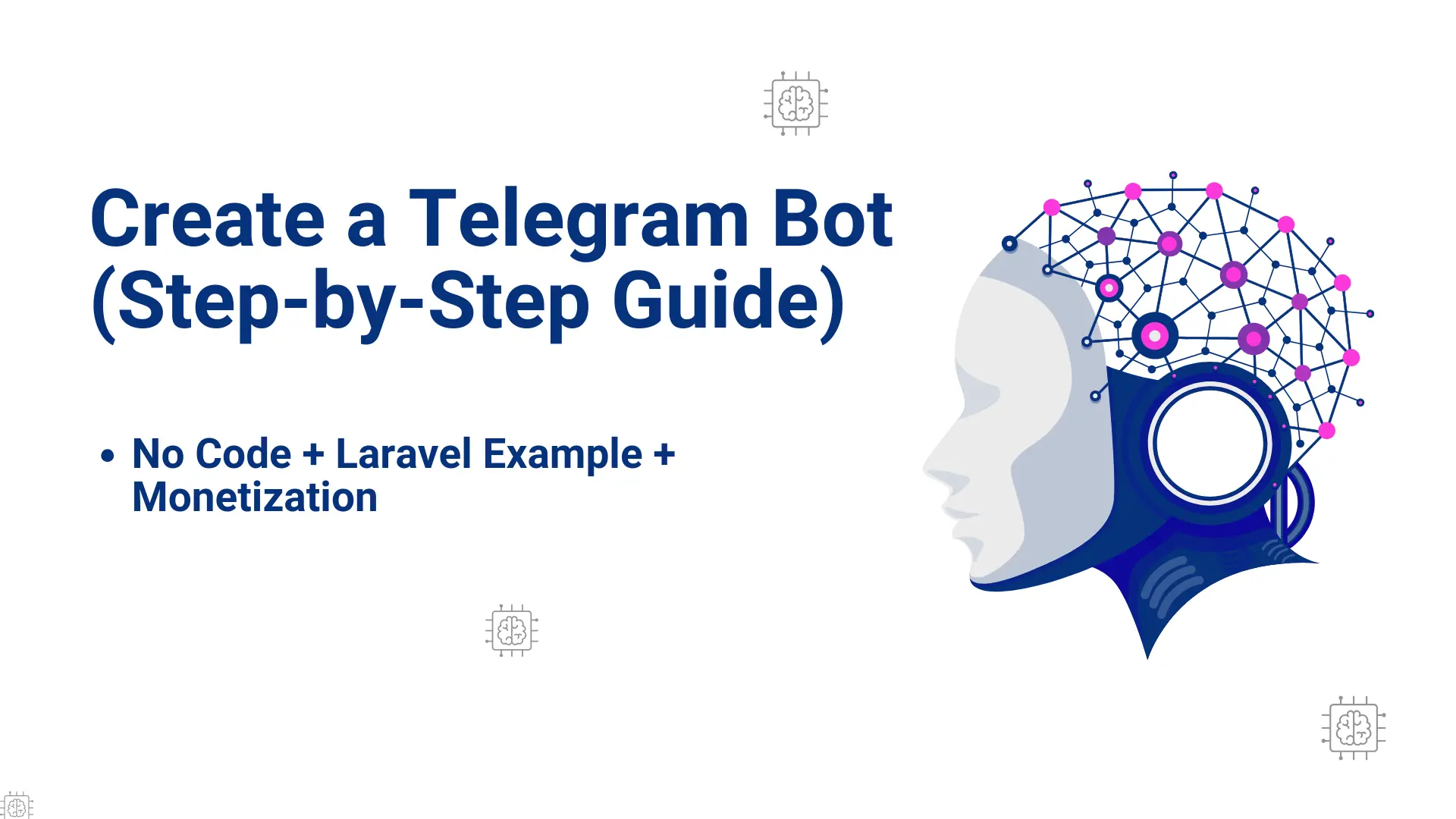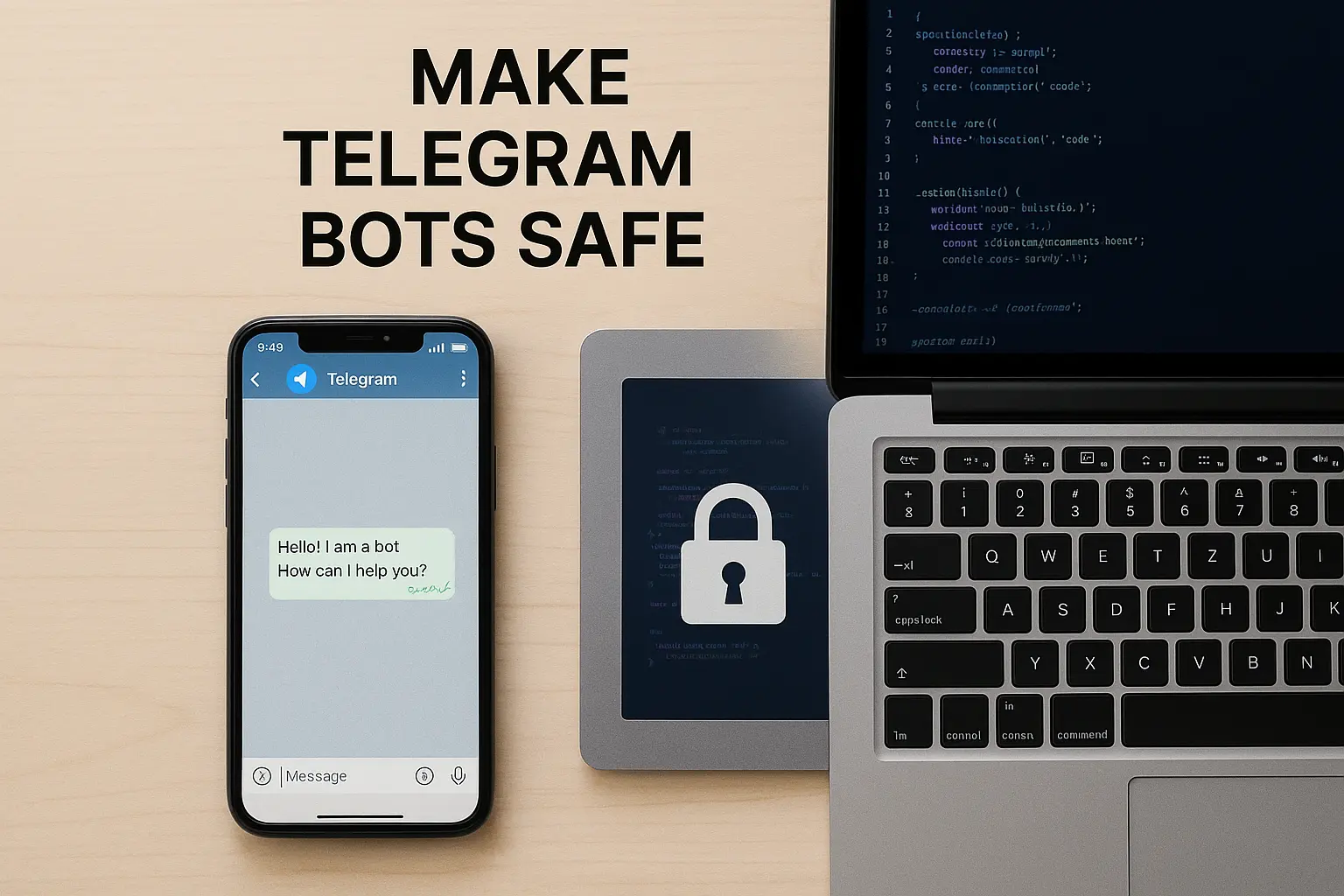People search “telegram bots to download movies” because Telegram is fast, private, and file-friendly. But that exact phrase often points to piracy — and that’s a hard, risky line to cross. Before we go further: using or building bots to obtain copyrighted movies without permission is illegal in most jurisdictions and can get you banned from platforms, expose you to takedown notices, and even legal action. It also harms creators.
This post does three things: (1) explains the legal risks and how Telegram is used (for better or worse), (2) shows legitimate ways to access and distribute movies through Telegram bots — public domain films, creator-distributed files, and in-app purchases — and (3) gives practical, ethical patterns for building or using bots that respect copyright, privacy, and platform rules.
“If it feels like a shortcut to free copyrighted content, it probably is — and it’s a liability, not a win.”
— short reality check worth repeating
Why people look for “Telegram bots to download movies”
Telegram’s strengths make it appealing for media sharing: large file support, channels for broadcasting, and an ecosystem of bots that can automate file delivery or send notifications. That combination makes Telegram attractive for people wanting to get or share movies quickly.
But that same convenience is why actors in piracy rings have used Telegram channels and bots to redistribute copyrighted films illegally — and why you should steer clear. Security researchers and platform monitors have tracked malicious and infringing services running on Telegram, and Telegram itself provides bot rules and a payments API that are meant for legitimate commerce and digital delivery. Securelist+1
The legal line: what’s allowed vs. what’s not
- Allowed: Sharing or distributing your own movie files, distributing movies you have explicit rights to (e.g., licensed indie films), and distributing public-domain or Creative Commons films. Using bots to sell/rent your own digital content (via Telegram’s Payments API or external gateways) in accordance with laws and terms of service is fine. Telegram
- Not allowed: Using bots or channels to download or redistribute copyrighted movies without the copyright holder’s permission. That includes using bots that scrape, host, or mirror pirated movies or automating access to illegal sources.
If you plan to publish or sell movies via a bot, you must control rights (licensing), expose terms of sale, and comply with local tax and payment regulations.
“Public-domain is fine. Piracy is not. Bots don’t change copyright law.”
— simple, legally sound guidance
Legitimate uses of Telegram bots for movies
There are many legal, useful patterns where a Telegram bot helps users download or stream movies lawfully:
1 — Public-domain movie delivery
Many films are in the public domain and can be redistributed freely. The Internet Archive hosts large collections of public-domain and Creative Commons films you can download and re-share legally. You can build (or use) a bot that indexes such public-domain titles and delivers download links or archive downloads to users. Internet Archive+1
2 — Creator-distributed content (self-publishers & indie filmmakers)
Indie filmmakers can use Telegram bots to sell or distribute their own work — e.g., paid downloads, private channel access to a film premiere, or sending a DRM-free download to buyers. Using Telegram’s Payments API or external payment processors enables in-app purchases and a smooth delivery flow while remaining compliant. Telegram
3 — Aggregation of legal streams & alerts
Bots can notify users when a movie becomes available legally (free on YouTube, added to a streaming service, or on public library platforms). Instead of handing out files, the bot sends links to legitimate sources (YouTube free movies, Archive.org, library streams). That’s helpful and safe — and keeps you on the right side of copyright. YouTube+1
4 — Personal backups and private transfers
If you own a copy of a film (for example, your personal recorded footage or a licensed copy that permits personal backup), bots can be used to automate your transfers between your devices — but be careful: many commercial licenses forbid redistributing those copies. Always check license terms.
Where to find legal movie files & feeds (sources to trust)
If you want to build or use a bot that distributes legal content, here are reliable sources to point users to:
- Internet Archive (Archive.org) — large public-domain and licensed film collections; ideal for public-domain bots and legal downloads. Internet Archive+1
- YouTube (official channels) — studios and distributors sometimes publish full movies legally for ad-supported viewing; your bot can notify or link to these uploads. YouTube
- Library of Congress / national film archives — public-domain or “free-to-use” films and historical footage (check country-specific rules).
- Official studio channels & streaming services — bots can send links to rentals/purchases on legitimate platforms (Amazon, Google Play, Vimeo On Demand).
If you aggregate links, always link to the canonical source and avoid linking to suspicious or shortener URLs that mask the destination.
How a legal “movie delivery” bot might work — high-level design (no piracy)
Here’s a lawful blueprint for a bot that helps users discover and download legal movies or trailers:
- Index layer: maintain a curated list of public-domain or licensed movie entries with metadata (title, year, runtime, license, canonical source URL). Use open sources like Internet Archive or studio-hosted YouTube uploads. Internet Archive+1
- Search & discovery: provide slash commands like
/search publicdomain <title>that return safe links and a short license note. - Delivery: if you host the file (e.g., indie film you own), deliver the file only to paying users after a verified payment via Telegram Payments API or an external gateway; for public-domain items, deliver the archive.org download link rather than re-hosting large files unnecessarily. Telegram
- Logging & terms: show and log user acceptance of terms (e.g., “I confirm I have rights to share this file”) and provide a privacy policy.
- Moderation & takedown: include a takedown workflow to respond to DMCA notices or copyright complaints and remove or disable content if notified.
That design avoids instructing or enabling piracy and keeps you aligned with platform rules.
Payments, rentals, and selling movies through bots
Telegram provides a Payments API for in-chat purchases and digital goods delivery; you can use that to sell your own films or access to a private channel where a movie is available. Telegram’s payments docs explain how to integrate invoices and handle digital delivery. If you plan to charge for downloads or rentals, you must also manage refund policies and, in some cases, VAT/sales tax compliance. Telegram+1
Safety, moderation & legal hygiene
If you run a bot or channel for legal movie downloads, follow these best practices:
- Verify rights: Don’t accept or publish files from users unless they supply proof of rights.
- Use trusted sources: Prefer links to archive.org, official YouTube channels, or your owned hosting.
- Include clear policies: Pin a short terms-of-use and refund policy in your bot and channel. Use Telegram’s privacy templates as a starting point. Telegram
- Monitor for abuse: Watch for suspicious uploads or requests that try to smuggle copyrighted files. Security researchers have documented phishing and illicit distribution services on Telegram — be vigilant. Securelist
“Bots are neutral. The content and the rights behind it decide whether you’re building value or trouble.”
— quick operational mantra
If you’re an indie filmmaker: how to sell via Telegram bots (ethical shortcut)
- Host the film on a secure CDN or file store that supports tokenized downloads (so links expire).
- Use Telegram’s Payments API (or Stripe/PayPal) to collect payment. Telegram
- After successful payment, the bot delivers a unique, time-limited download link or invites the buyer to a private channel where the file is available.
- Offer watch-on-demand and optional perks (Q&A with creators, behind-the-scenes).
- Publish clear terms and rights for buyers (rental vs. ownership).
This model keeps everything above board and gives a great UX inside Telegram.
Final notes: safer alternatives to “download bots”
- Use bots for discovery, not piracy. A bot that tells you where to legally watch a movie is valuable and safe.
- Build bots that distribute public-domain or creator-permitted content. Internet Archive is a great data source for this. Internet Archive
- If you see channels or bots advertising “free downloads” of new copyrighted films — report them and avoid interacting. They’re likely illegal and may be traps. Securelist
“Make the legal path the easy path. That’s how communities last.”
— closing advice



